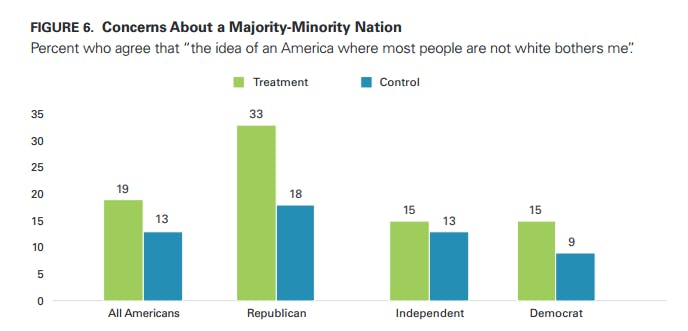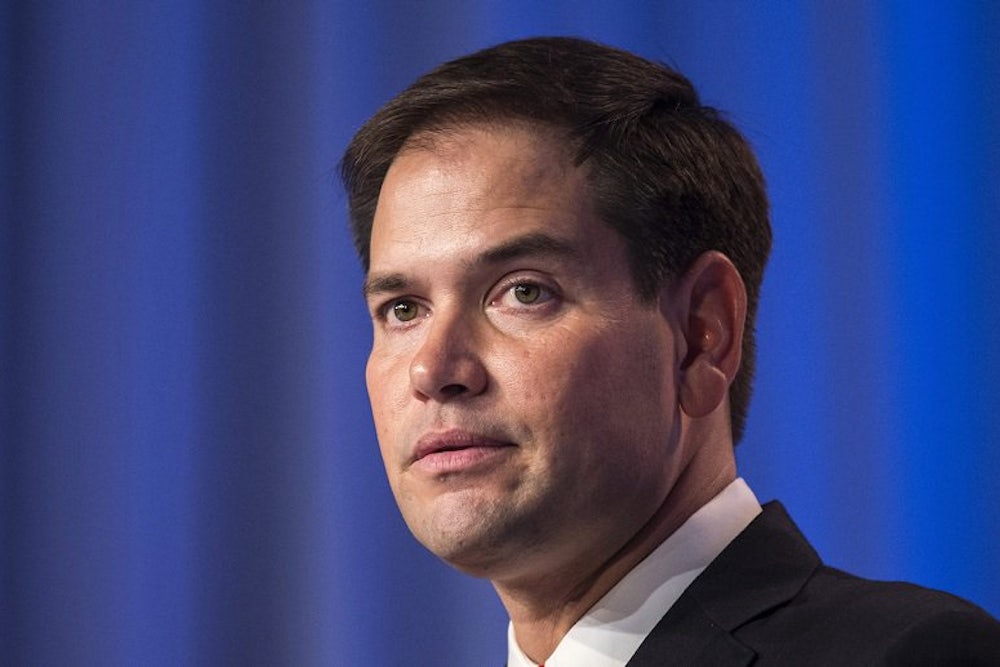Conventional wisdom has long held that Republicans need to win a larger share of Hispanic voters to re-take the White House in 2016, and thus, the party should support immigration reform. But a new survey from Brookings and the Public Religion Research Institute confirms what many previous polls have shown: Hispanics don’t care that much about immigration reform. They care more about finding work and being treated with respect—and this latest poll shows the Republican party comes up woefully short on both.
RealClearPolitics’ Sean Trende has written convincingly that the GOP can win the presidency if they earn a significant share of the white vote and retain some Latino votes through socioeconomic policies. On Monday at National Review, Reihan Salam proposed that Republicans emphasize jobs and education proposals laid out by reform conservatives in their recent policy manifesto, “Room to Grow.” The Brookings/PRRI suggests that's the wiser approach. Just 36 percent of Hispanic respondents said immigration reform was the issue of “highest" priority, versus 62 percent for jobs and 49 percent for health-care costs. Climate change was the only issue that ranked below immigration in the poll.
If Republican presidential candidates adopted reform-conservative ideas, their standing with Hispanics would undoubtedly improve. But as Jonathan Chait and others have argued, reform conservatives are still a minority in the GOP. Representative Paul Ryan’s budget, which makes massive cuts to low-income programs, is the party’s defining feature right now. Ryan demands such steep cuts because he promised to balance the budget in the next 10 years. His refusal to consider additional revenue necessitated trillions of dollars in cuts to programs for low-income Americans. That doesn’t appeal to Hispanics: Multiple polls find that they, like most of the country, prefer a balanced approach to deficit reduction. But Republicans are not going to propose that in 2016. The candidates will attempt to outdo each other with their commitment to fiscal austerity.
But Republicans’ Hispanic problem runs deeper than policy. It’s a deep-seated fear of the changing demographics in America. While House Republicans do not need to pass immigration reform to woo Hispanic voters, they do need to show compassion for them. In 2012, Mitt Romney was unable to do that: He argued that “self-deportation” was the best strategy for dealing with the 11 million undocumented immigrants in the United States. In the end, he won just 27 percent of the Hispanic vote.
That same challenge still exists. The Brookings/PRRI poll found that 50 percent of Republicans believe immigrants are a burden on the country, compared to just 44 percent who say they strengthen the nation. On the other hand, 73 percent of Democrats say that immigrants strengthen the country. Republican media outlets only exacerbate this trend. As I wrote earlier Tuesday, Fox News viewers are not moderate Republicans, but right-wing conservatives. They are most hostile to immigrants, with 60 percent saying immigrants are a burden on the country. Only 33 percent consider them a strength.
The survey authors also ran a creative test for gauging the concerns that Americans have for an America that is not majority-white. They split the respondents into two groups. The first (the “treatment”) was told that whites in America will be a minority of the population by 2050 and then asked whether they agreed or disagreed that “the idea of an America where most people are not white bothers me.” The second group (the “control”) was only asked that question, without the initial statement. Here are the results by political party:

Small percentages of Republicans, Democrats and Independents all expressed trepidation over an America where the majority isn’t white. In all cases, informing the respondents that America would hit that point by 2050 only increased this fear. But only among Republicans did the percentages skyrocket upwards: A third of Republicans who were told that America would no longer be majority-white by 2050 were bothered by it. The survey authors do not explain this gap, but one potential answer is that Republicans have more deep-seated issues with the country’s changing demographics that only appear when they must confront the realistic possibility of such an outcome.
This is the GOP’s fundamental problem. It’s impossible to design a policy agenda that both appeals to Hispanics while not alienating the third of the party that fears the changing demographics in America. Immigration reform is just the policy manifestation of this deeper issue. If (and when) Senator Ted Cruz runs for president, he will propose a restrictive immigration plan. As the Washington Post’s Greg Sargent wrote on Monday, this will also drag the other candidates further to the right. In the Republican primary, this may be rational. Whoever moves furthest to the right can use demographic fears to earn the support of a third of the primary electorate.
But whoever emerges will have locked themselves into an economic agenda and stance on immigration that alienates Hispanics. When Hispanics, in turn, vote en masse for Hillary Clinton as president, Republicans should not blame the party’s inability to pass immigration reform. They should blame their party’s refusal to recognize the changing nature of the country.
